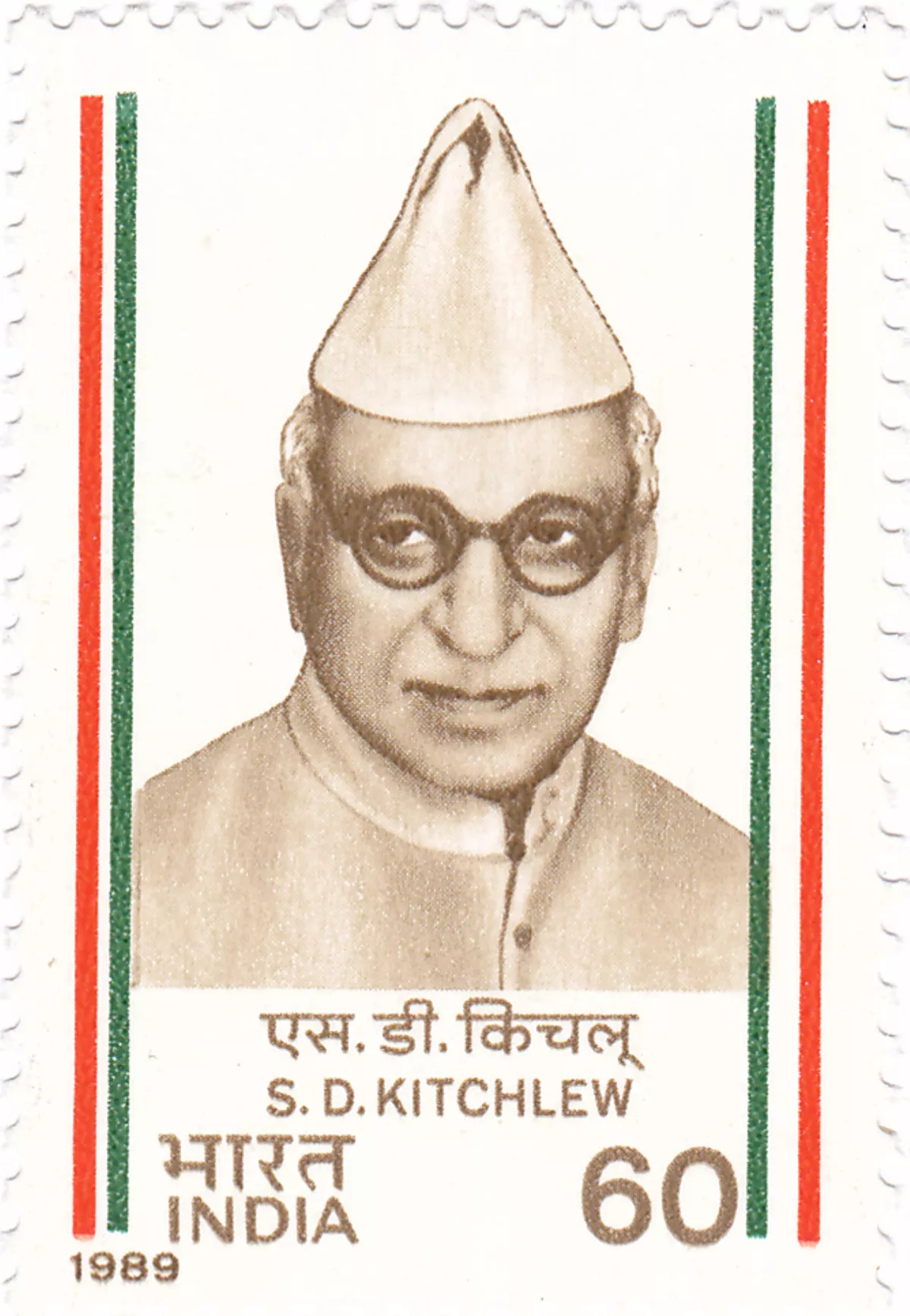 1.
1. Dr Saifuddin Kitchlew was an Indian independence activist, barrister, politician and later a leader of the peace movement.

 1.
1. Dr Saifuddin Kitchlew was an Indian independence activist, barrister, politician and later a leader of the peace movement.
Saifuddin Kitchlew is most remembered for the protests in Punjab after the implementation of Rowlatt Act in March 1919, after which on 10 April, he and another leader Satyapal, were secretly sent to Dharamsala.
Saifuddin Kitchlew was a founding member of Jamia Millia Islamia.
Saifuddin Kitchlew was awarded the Stalin Peace Prize in 1952.
Saifuddin Kitchlew was born on January 15,1888 in Amritsar, in the Punjab Province of British India into a Kashmiri Muslim family of the Kitchlew clan, to parents Azizuddin Kitchlew and Dan Bibi.
Saifuddin Kitchlew's father owned a pashmina and saffron trading business and originally belonged to a Brahmin family of Baramulla, who had converted to Islam from Hinduism.
On his return Saifuddin Kitchlew established his legal practice in Amritsar, and soon came in contact with Gandhi.
Saifuddin Kitchlew took part in the Satyagraha movement and soon left his practice to join the Indian independence movement, as well as the All India Khilafat Committee.
Saifuddin Kitchlew was first exposed to Indian nationalism after public outcry over the Rowlatt Acts.
Saifuddin Kitchlew was arrested with Gandhi and Dr Satyapal for leading protests in Punjab against the legislation.
Saifuddin Kitchlew rose in the Congress Party, heading its Punjab unit before rising to the post of AICC General Secretary, an important executive position in 1924.
Saifuddin Kitchlew was a member of the Foundation Committee of Jamia Millia Islamia, which met on 29 October 1920 and led to the foundation of Jamia Millia Islamia University.
Saifuddin Kitchlew started an Urdu daily Tanzim and was instrumental in the establishment of Swaraj Ashram in January 1921 at Amritsar to train young men for national work and to promote Hindu-Muslim unity.
Saifuddin Kitchlew supported a united Indian nationalism against British colonial rule and opposed the partition of India, holding that a divided India would weaken Muslims, both economically and politically.
Saifuddin Kitchlew was opposed to the Muslim League's demand for Pakistan and later in the 1940s became President of the Punjab Congress Committee.
Saifuddin Kitchlew spoke out against it at public meetings across the country, and at the All India Congress Committee session that ultimately voted for the resolution.
Saifuddin Kitchlew called it a blatant "surrender of nationalism for communalism".
Saifuddin Kitchlew moved closer to the Communist Party of India.
Saifuddin Kitchlew was the founder president of the All-India Peace Council and remained President of 4th Congress of All-India Peace Council, held at Madras in 1954, besides remaining Vice President of the World Peace Council.
Saifuddin Kitchlew moved to Delhi after his house burnt down during the partition of India riots of 1947, spending the rest of his life working for closer political and diplomatic relations with the USSR.
Saifuddin Kitchlew died on 9 October 1963, survived by a son, Toufique Kitchlew, who lives in a Lampur village on the outskirts of Delhi, and five daughters.